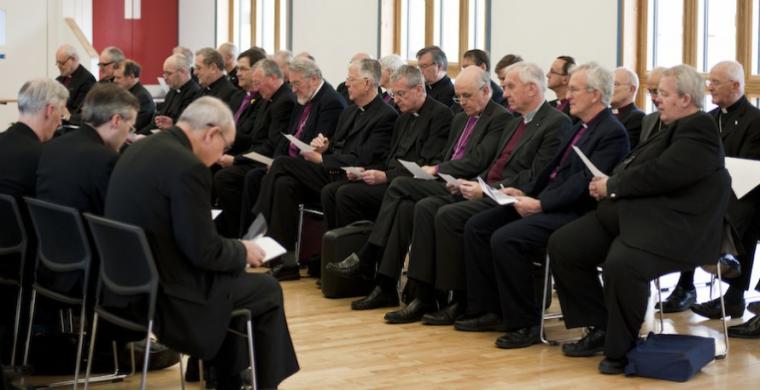CofE House of Bishops’ statement: What is going on?
By Thurstan Stigand
http://anglicanmainstream.org/
May 24, 2014
After its meeting at York this week the House of Bishops issued a statement about what it had decided which included the following paragraph on the facilitated conversations proposed by the Pilling report.
The House also discussed the next steps in the process for conversations around Human Sexuality. In its discussion the House noted that the process of shared conversations needed to demonstrate primarily how the Church of England could model living together with issues of tension, where members took opposing views whilst remaining committed to one another as disciples of Jesus Christ – members of one church in both unity and diversity. The House agreed to a proposed process and timescale for the conversations with regional discussions taking place over the next two years. The House also authorised its Standing Committee to sign off the final arrangements and materials.
There are several points worth noting in regard to this statement.
First, we do not know, and will never be told, why the House of Bishops reached this decision? Why? Because House meetings are private and their papers and minutes are never published. This is very odd given that the House meets as a House of the General Synod and all Synod meetings are open to everyone and the papers and minutes are publicly available. It also means that those who were not present can have no means of knowing whether the decision the House took was reached for sensible reasons or not. Without access to what was said and to the material the bishops were discussing we cannot make a properly informed assessment of what was done.
Secondly, what we do know is that decisions about a matter which is extremely important for the future direction of the Church of England are being taken by a very small group of people. Since Pilling was published there has been no opportunity for the General Synod or the wider Church of England to debate this highly contentious report or the Bishop of Birkenhead’s significant dissenting statement. The House of Bishops has simply made a unilateral decision that we should accept Pilling’s recommendations. Furthermore, the final decision about the future shape of the Pilling process is not even going to be made by the whole House but by its Standing Committee.
All this means that we are looking less and less like a conciliar church where matters are discussed and debated openly by bishops, clergy and laity together and more and more like a curial church in which a small group of bishops and their advisors decide for everyone else. Who agreed to this being the case?
Thirdly, the House appears to have unilaterally changed the focus of the proposed conversations.
Back on the 27 January the College of Bishops accepted ‘the recommendation of the Pilling report that the subject of sexuality, with its history of deeply entrenched views, would best be addressed by facilitated conversations.’
It is clear here that the conversations are going to be about sexuality. However in this week’s statement we are told that the conversations are going to be ‘about how the Church of England could model living together with issues of tension, where members took opposing views whilst remaining committed to one another as disciples of Jesus Christ – members of one church in both unity and diversity.’ What has happened to having a substantive conversation about the biblical and theological issues relating to sexuality? Have we simply given up on this so we can discuss instead how we can model living with difference? If so, who made this decision and on what basis?
Fourthly, it is already the case that the Church of England people hold ‘opposing views’ about sexuality whilst ‘remaining committed to one another as disciples of Jesus Christ.’ This has been true for decades. Why then do we need to have facilitated conversations to discuss how to do so?
The only reason for discussing the matter is in order to bring about change in the present situation. Therefore the suspicion has to be that what is really being planned is a process in which there will be a change of theology and practice in the Church of England in which revisionist views of sexuality are accorded equal status with the Church of England’s traditional teaching and in which there is a permissive approach to the blessing of same-sex relationships as recommended by the majority of the Pilling group. If this what is really going on, then Archbishop Justin and the rest of the House should come clean and say so. The Church as whole should be told the whole truth rather than being kept in the dark.
END














